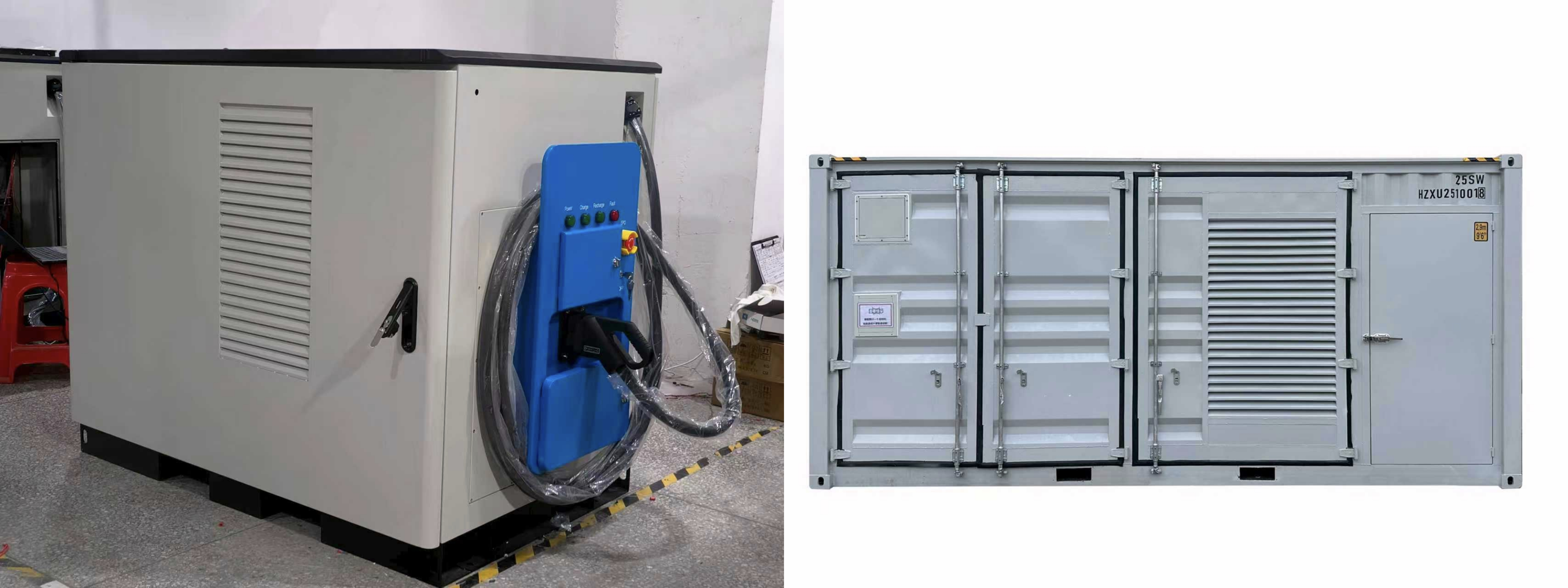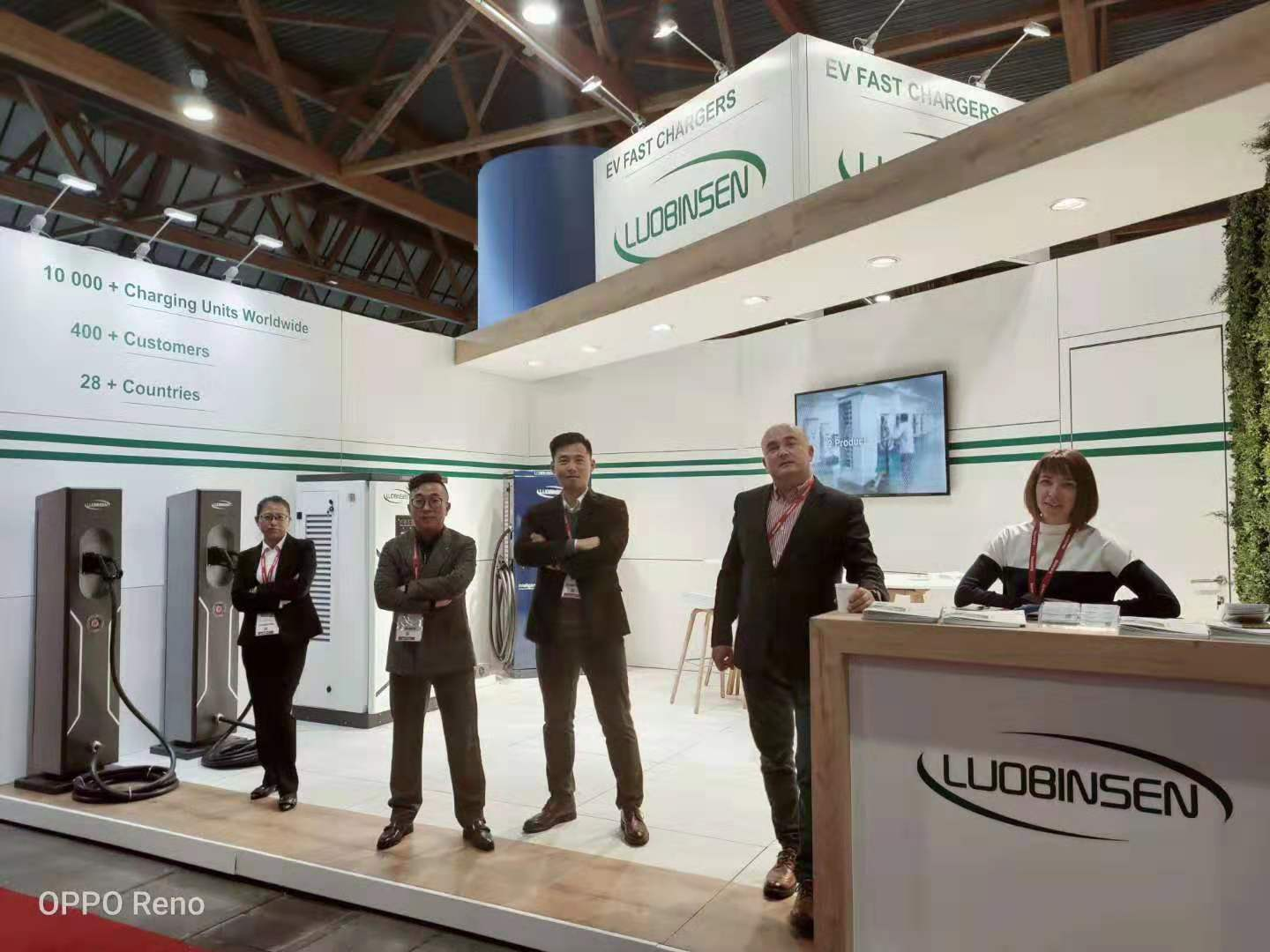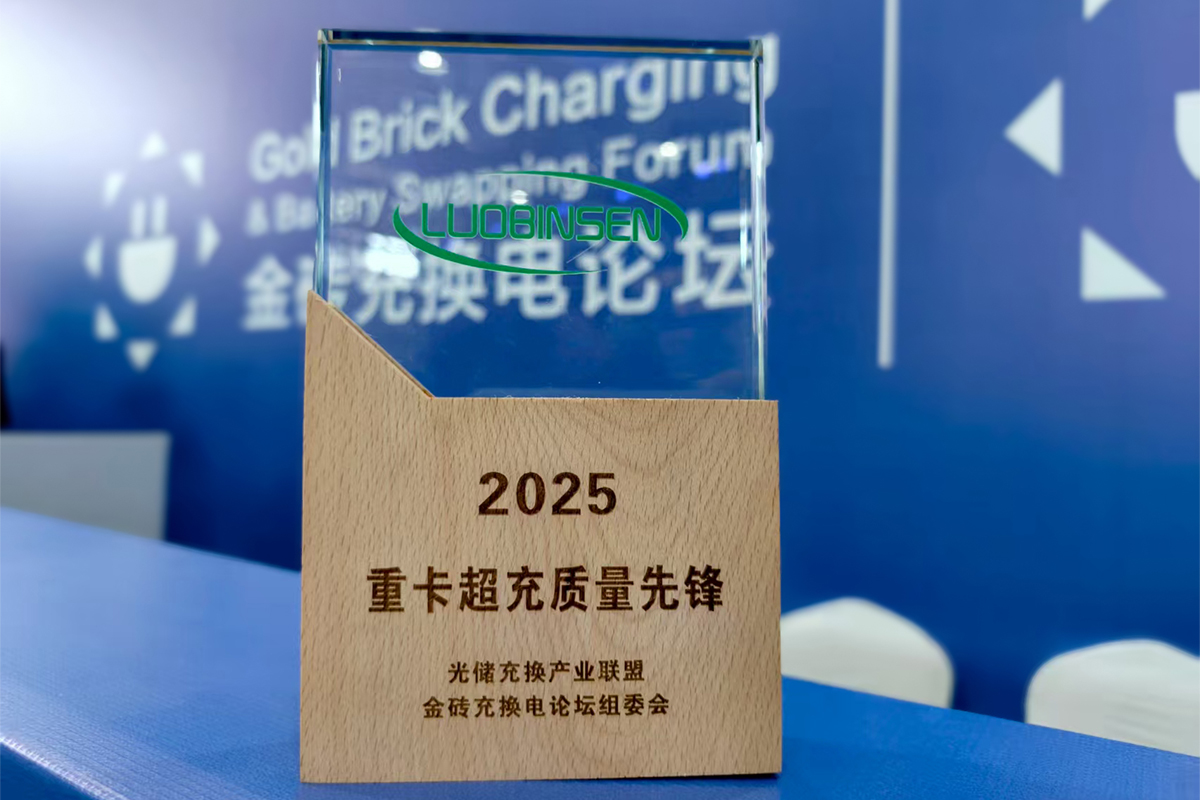As more drivers switch to EVs, the public charging ecosystem is facing challenges.
More EVs on the road mean insufficient charging stations and heavier demand on the grid. This rise in demand drives electricity prices upward and often leads to long queues at charging stations during peak hours. Drivers have to deal with delays, and operators face higher operating costs.
How to address? Energy storage for EV charging offers a practical way. By storing electricity during low-demand periods and supplying it when charging demand spikes, they help control costs, reduce pressure on the grid, and make charging more accessible.

What Does Battery Charging System Mean?
The battery charging stations integrate large-scale battery storage systems directly with electric vehicle chargers. It stores energy in its batteries beforehand. When an EV needs a charge, the power is supplied primarily from this local battery bank, not straight from the grid.
Here is how energy storage for EV charging stations helps:
Reducing Electricity Costs
One of your biggest operational expenses is electricity. Energy storage for EV charging lowers the vehicle’s charging cost, which benefits both the users and the operators. Here is how:
1. On-peak and Off-peak Electricity Prices
Electricity prices fluctuate depending on the time period.
During on-peak hours, when demand is high, electricity rates are typically higher. These peak times usually occur from 7 am to 11 pm on weekdays, when people need to go to work with air conditioning on or charging in public places.
In contrast, off-peak hours are usually from 11 pm to 7 am on weekdays and during weekends, when electricity consumption is low.
In addition, during summer and winter, due to the need for air conditioning and heating, increased electricity consumption may also lead to relatively high electricity prices.
2. Savings Example
The energy storage system lets you store cheaper electricity in off-peak hours and use it during peak hours to lower your energy costs.
Assume your busy commercial station has a 200 kW demand during the 4-hour evening peak.
- · On-Peak Rate: $0.25 per kWh
- · Off-Peak Rate: $0.15 per kWh
Cost without storage: 200 kW × 4 h × $0.25/kWh = $200 per evening.
Cost with storage: You charge the battery off-peak. The energy used is the same, but the cost is 200 kW × 4 h × $0.15/kWh = $120 per evening.
Daily Savings: $80. That adds up to nearly $30,000 in annual savings just on demand charges for this single station. This direct cost reduction is a primary financial benefit of energy storage for EV charging.
Grid Stability + Power Outage Protection
The stability of the local power grid is crucial for your operations. Using energy storage for EV charging can help in stabilizing the grid and safeguarding against unexpected power outages. Here is how:
1. Alleviating Grid Pressure
Concentrated high-load electricity consumption can strain the grid. Energy storage saves electricity when demand is low and supplies it during high-demand periods. This eases pressure on the grid and supports more balanced energy use.
2. Seamless Operation
Energy storage also provides seamless backup power. If the grid fails, a standard charging station goes dark. But an EV charger with battery storage can continue operating. For fleet or public stations, this resilience is a massive competitive advantage. This gives drivers reliable access to power and helps operators avoid downtime.
New Revenue and Business Models
Is EV battery storage only used for charging fees? No, it can also be a source of new business opportunities.
1. Make Money from Battery Storage
When grid load rises during high demand, stored excess energy can be sold to the grid. This simple approach turns the storage system into a revenue-generating asset while also supporting the grid.
2. Enhanced Competitiveness
Energy storage also gives charging stations a competitive advantage during outages. Stations that stay operational while others shut down attract more drivers and build stronger customer trust. Reliable service in difficult moments helps operators stand out and grow their customer base.
PV + ESS + EV
To maximize benefits and sustainability, combine solar panels, energy storage systems (ESS), and electric charging stations. Solar panels generate clean energy, the ESS stores it, and then uses that energy for EV charging.
Let’s have a closer look at the economic and environmental benefits of using this charging ecosystem:
1. Economic Benefits
Solar energy lowers long-term operating costs since the power produced is free after installation. Stored surplus energy can also be sold back to the grid, giving operators another source of income.
2. Environmental Benefits
Using solar power for EV charging cuts fossil fuel use and reduces carbon emissions. It supports cleaner transportation and contributes to a more sustainable energy system.
Application Cases
Energy storage for EV charging has multiple use cases, such as:
1. Public Fast Charging Stations
Public fast charging stations can reach over 120kW per unit, resulting in significant load during peak hours and generally higher commercial electricity costs.
After installing an EV charger battery storage, the charging point has reduced its reliance on the grid, avoiding high peak electricity prices without compromising on charging speed.
2. Business Areas
Peak charging demand coincides with the building’s own peak electricity usage (e.g., AC use), leading to high energy costs. If an energy storage system is integrated, it will distribute the electricity load and help avoid higher commercial electricity rates.
3. Communities and Fleets
Many residents often need to charge their vehicles within their communities due to the inability to install chargers at home. For fleets, maintaining operational continuity without being affected by power outages is crucial. Energy storage for EV charging can serve as backup power sources for these locations, enhancing their resilience.

Get Advanced EV Charging Solutions
The future of profitable and resilient EV charging is clear. The key lies in integrating energy storage systems to reduce costs and enhance flexibility. To implement these advanced solutions, you need a reliable partner.
Luobinsen is an expert EV charging solution manufacturer, offering EV charging stations for home and commercial use and customized energy storage systems. EV chargers feature:
- · Wide power options from standard AC charging to high-power DC fast charging.
- · Support for multiple connector standards, including CCS1, CCS2, CHAdeMO, GB/T, and NACS.
- · Smart charging management platforms that allow operators to monitor, control, and optimize charging activity.
- · Durable construction with high IP and IK ratings (such as IP55/IK10, depending on the models).
- · Advanced safety protections such as temperature control, fire protection, and leakage protection.
- · Scalable setups suitable for both small and large installations.
In addition to these EV charging solutions, we also offer customized mobile energy storage systems tailored to your needs, ranging from 60kW mobile units to megawatt-level systems, providing a one-stop solution for your EV charging business. Now, we have a successful track record of delivering these tailored solutions.
Wrapping-Up
Energy storage makes EV charging more cost-effective, stable, and reliable by reducing grid pressure and cutting electricity costs. It creates a stronger and more sustainable setup for both operators and drivers.
Luobinsen delivers advanced and dependable EV charging and energy storage solutions that help operators maintain reliable service. Contact us now to customize your EV charging solution!




